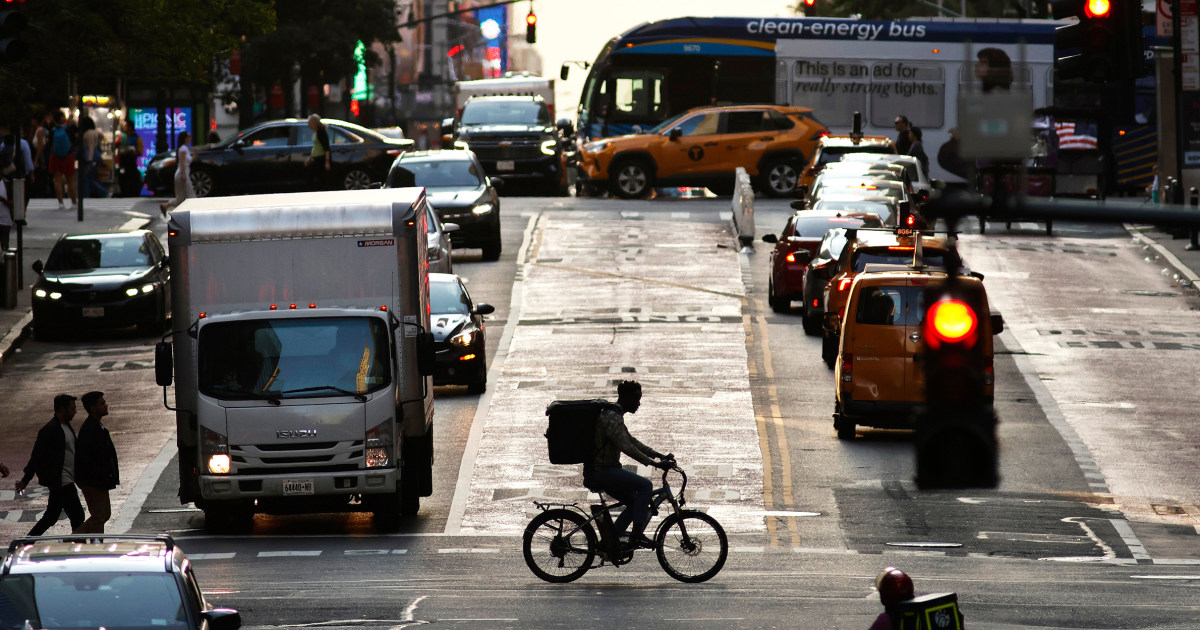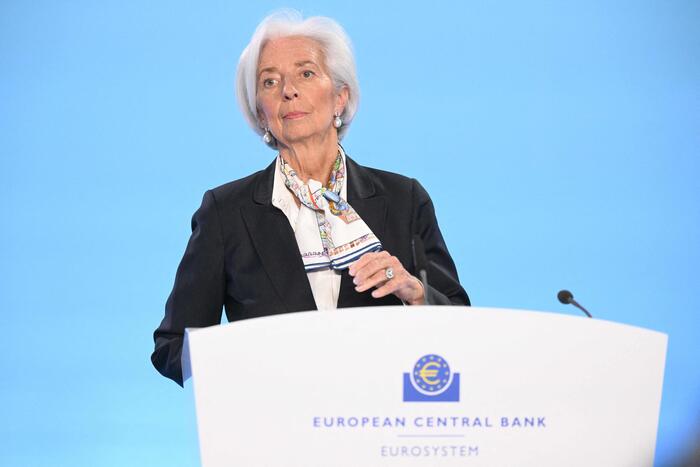Icon: enlarge
Fitter at ZF Friedrichshafen
Photo: Felix Kästle / dpa
With the arrival of the corona pandemic in spring 2020, a long phase of the upswing ended for Germany.
The economy had grown every single year for over a decade.
The development on the labor market was particularly strong, with an average of around half a million new jobs subject to social insurance being created every year.
It is still unclear whether and to what extent the pandemic will change economic and social conditions beyond its end.
For example, experts are fundamentally optimistic about the labor market.
Accordingly, Corona is accelerating some of the previously existing trends and increasing the associated challenges - but a long systemic crisis is not to be expected.
In the medium and long term, the biggest problem will remain the same as it was before the pandemic: Germany is threatened with a shortage of suitably qualified workers.
This means that after Corona, a trend that had a strong dynamic in previous years could continue: In 2019, employee wages almost caught up with income from companies and assets, in terms of growth since 2000 - after having lagged significantly behind for a long time.
This emerges from the current distribution report of the German Trade Union Federation (DGB), which SPIEGEL received in advance.
The graphic shows the development since the turn of the millennium:
The DGB experts have compiled numerous data from official statisticians and international organizations on more than 90 pages and made their own calculations.
The result is a varied overview of the distribution of wealth in Germany, inequality in international comparison, and gender equality.
Icon: enlarge
Worker in metal workshop in Klitten
Photo: Florian Gaertner / imago images / photothek
Wages: the race to catch up
The noughties were meager for employees in Germany as a whole: if inflation is factored out, the total of all employee wages - which in addition to the actual gross wages also include employers' social contributions - was below that of 2000 in each year of this decade.
At the same time, capital income rose sharply: corporate profits and investment income always yielded significantly more than in the comparable year 2000 - at the top up to 38 percent more (in 2007).
Since 2010, however, employee wages have increased significantly, most recently with great dynamism.
In 2019 they had almost caught up with their investment income: adjusted for price, they were 25.9 percent higher than in 2000, and corporate and property income by 27.4 percent.
In the first half of 2020, the deep economic downturn caused by the corona crisis caused investment income to plummet far more sharply than employee compensation - however, they are likely to recover much more strongly in the upswing after the pandemic.
This development is also reflected in the so-called wage share.
It denotes the share of all employee earnings in total national income.
In 2019, at 72 percent, it almost reached the value of 2000;
in the meantime it had fallen to 64.5 percent in 2007.
However, this indicator does not in itself say much about whether the individual wages of employees have also improved.
Because if half a million new jobs are created every year, the total amount of wages can rise without the individual being able to afford more.
However, the average monthly real wages of employees have also risen significantly recently.
In 2019, they were 12.5 (gross) or 12.2 percent (net) above the level in 2000 - mind you, excluding inflation.
On average, employees were able to afford noticeably more before the corona crisis than at the turn of the millennium - while they actually had less purchasing power in the second half of the noughties.
In the graph you can see the development of both gross and net wages:
One reason for the positive development is the introduction of the minimum wage in 2015, write the authors of the DGB distribution report.
In addition, in the second half of the decade in particular, the unions were able to achieve high collective bargaining agreements, which meant that the scope for distribution was often exhausted.
The earnings gap in corporations is huge
The DGB experts also make it clear in their report that earnings are often very unevenly distributed within companies.
This is particularly the case in large corporations, where the salaries of top managers and ordinary employees vary widely.
For example, Frank Appel, CEO of Deutsche Post, earned 162 times as much as the average Post employee in 2019.
In relation to the entire Board of Management, the gap at the Volkswagen Group was particularly large.
In contrast, the gaps between top managers and employees were relatively small at the chemical company Covestro, where a board member earned an average of 17 times as much as the employees in 2019.
Income: high inequality - but effective redistribution
In general, the inequality in the distribution of income in Germany is comparatively high.
This is at least true when it comes to so-called market income - i.e. what someone earns gross through gainful employment or what flows to them as corporate profits or investment income.
The Gini coefficient, which can reach values between 0 and 100 percent, serves as a key figure.
At 0 percent everyone has the same income, at 100 percent one person has the entire income and everyone else has nothing.
On average for the industrialized countries united under the umbrella of the OECD, this Gini coefficient for market income is 46.8 percent - but in Germany it is exactly 50 percent.
In Germany, however, it is relatively effective to reduce the high inequality in market income through redistribution.
If you look at disposable income - i.e. after taxes and social contributions have been paid and state social benefits received - the Gini coefficient in Germany is 28.9 percent, which is below the OECD average of 31.5 percent.
In the following graphic, selected OECD countries are sorted according to the effectiveness of their redistribution: Countries that greatly reduce income inequality are at the top - countries with less dampening of inequality are at the bottom.
According to this, inequality is evened out even more in Finland or France, but less so in Spain, Japan or the USA than in Germany.
Switzerland catches the eye: there, the inequality of market incomes is smaller than in almost any other industrial country - but the disposable income, which is more important in everyday life, is more unevenly distributed than in Germany.
Icon: enlarge
Upscale residential area in Heidelberg
Photo: imago images / Westend61
Wealth: Extremely unevenly distributed - and hardly taxed
In an international comparison in particular, the situation with wealth in Germany is significantly different from that with income: in Germany, wealth is more concentrated in the wealthiest percent of the population than in most of the other industrialized countries in the world.
That one percent has more net worth than 87.6 percent of the population combined.
This concentration of wealth is even higher among the super-rich, for example in the USA - and, curiously, also in Sweden, which is dominated by social democrats.
But even in Great Britain or Switzerland, which are considered economically liberal, the top percent does not account for such a high proportion of total wealth.
At the same time, wealth in Germany is rarely used to finance the common good.
Overall, taxes on assets - for example through inheritance or property tax - only contribute 2.7 percent to total tax revenue.
In the UK and the USA, on the other hand, it is more than twelve percent each, in Switzerland 7.6 percent.
The DGB therefore calls for greater taxation of assets, among other things: »Strong shoulders must contribute more to community and social cohesion.
This is necessary in order to overcome the burdens of the corona crisis together, «says DGB board member Stefan Körzell.
Icon: enlarge
Senior in Stuttgart
Photo: Franziska Kraufmann / dpa
Women: Far less money in old age
In an international comparison, Germany also ranks lower in terms of gender equality, especially in terms of income in old age.
If you add the income from statutory, company and private pensions together, women received an average of 37.4 percent less than men in 2019.
Although the retirement income of women in many EU countries is considerably lower than that of men, the gap is usually smaller.
In Denmark senior women get an average of 92.6 percent of what pensioners get from their pension.
Icon: The mirror


/cloudfront-eu-central-1.images.arcpublishing.com/prisa/2VA2ALVO6BDXLM22W73UWN5GDY.jpg)






